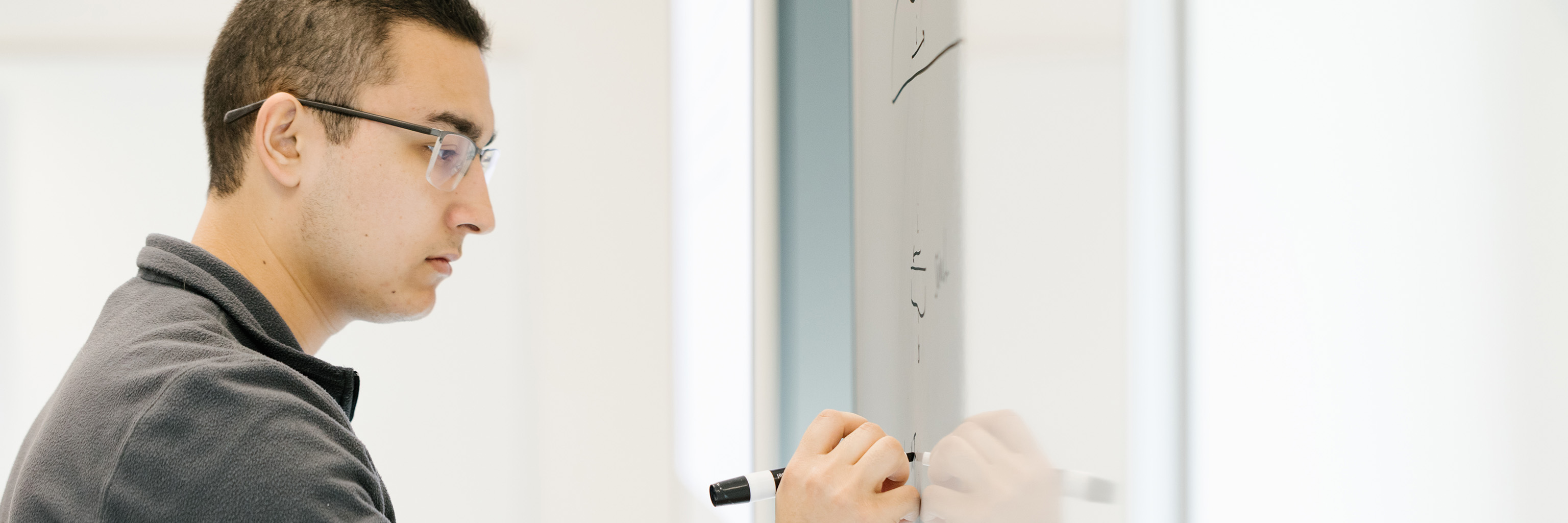Many undergraduate Physics majors become involved in research projects during their junior and senior years. These experiences often prove transformative, giving them a vision of the paths their careers could take.
One of the advantages of attending a Research I university, as opposed to a smaller college, is the greater opportunity to become involved in research. Here, new knowledge is generated. Indiana University Physics is at the forefront of research in several areas: Nuclear Physics, Particle Physics, Condensed Matter Physics, and Biophysics. When an undergraduate participates in a lab group, they may contribute to new discoveries and strengthen their preparation for graduate school or medical school. Only the most serious and dedicated students choose to do research, but the benefits are substantial.

 The College of Arts
The College of Arts